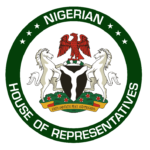Nigeria is currently exposed to N13.9 trillion contingent liabilities, a report by the House of Representatives’ joint committees on Finance, National Planning and Economic Development and Aid, Loans and Debt Management has revealed.
The report, which was on the 2024-2026 Medium Term Expenditure Framework and Fiscal Strategy Paper (MTEF/FSP), was obtained by correspondent yesterday.
The clerk of the House Committee on Finance, Barrister Oscar Okoro, said the report would be laid at plenary today.
The Economic Times describes a contingent liability as a potential loss that may occur in the future depending on the outcome of a specific event. Potential lawsuits, product warranties and pending investigation are some examples of a contingent liability.
Subsidy removal: Federation Account monthly inflow exceeds N1trn – FG
FG mulls shipping line to capture $10 billion market
The committee’s report noted that the contingent liabilities are a result of various agreements signed on behalf of the Federal Government by various Government-Owned Enterprises (GOEs)/Ministries, Departments and Agencies (MDAs), and some states but guaranteed by the government.
The amount of the liabilities is 11.3 percent of Nigeria’s total public debt which the Debt Management Office (DMO) put at N87.38 trillion as of the second quarter of this year.
The report said some revenue-generating agencies were involved in joint venture agreements, especially in the oil and gas sector where Forward Sales Agreements were executed for upfront payments for future product delivery without recourse to the National Assembly.
It said 12 agencies were listed as being behind the cumulative contingent liabilities incurred.
The agencies were named as the Federal Mortgage Bank of Nigeria, the Federal Capital Development Authority (Katampe Infrastructure Project), the Nigerian Ports Authority (Lekki Deep Seaport), the Nigerian Export-Import Bank, the Nigeria Mortgage Refinance Company Plc, the Nigeria Bulk Electricity Trading Plc (Payment Assurance Facility and the Power Sector Contingent Liabilities Put-Call Option Agreement and the Power Sector Contingent Liabilities-Partial Risk Guarantees).
The report listed other MDAs and the liabilities as “Legacy FGN exposure from PHCN successor companies, NNPC – AKK Gas Pipeline Project, Family Homes Fund Limited (FHFL), pension arrears for MDAs and others”.
The report added, “However, it was observed that most of these agreements were never brought to the National Assembly for consideration, hence these agreements were domiciled and subject to international Laws or legal systems”.
The report said the trend was also observed in other sectors notably in the power sector where power purchase agreements were entered into by the Nigerian Bulk Electricity Trading (NBET) and the Niger Delta Power Holding Company (NDPHC) committing the government to a whopping $40 million monthly take-or pay agreement even when the agencies were fully aware that the country had limitations in meeting up with the obligation of the agreements.
“Such agreements subject the country to international arbitrations which expose the country to huge contingent liabilities. In 2024 alone, contingent liabilities of the government are estimated at N6.9 trillion, and N7 trillion for 2025 and 2026 respectively,” the report read in part.
Based on the findings, the committee recommended that the benchmark oil price of $73.96, $73.76 and $69.90 per barrel be approved for 2024, 2025 and 2026 respectively.
It also recommended that a daily crude oil production of 1.78million bps, 1.80mbps and 1.81mbps for 2024, 2025 and 2026 respectively be approved subject to NNPC confirmation of actual and verifiable deliveries.
The committee also recommended that the exchange rate of N700, N665.61 and N669.79 to $1 proposed by the executive for the periods covering 2024-2026 be considered for approval in line with the federal government’s drive to enhance local production (both oil and non-oil) for increased foreign reserve growth.
The committee also recommended that N7.8 trillion in new borrowings (both domestic and foreign) be supported “given the country’s current effective debt management strategy which has moderated borrowing costs and decreased the amount of short-term debt in the portfolio and refinancing risk”.
The report further recommended that all items locally produced should be out rightly banned from importation and customs tariffs amended accordingly.
It also said the Central Bank of Nigeria should ensure that banks have access to forex to provide funds to importers and other users to prevent patronage of the parallel market.
The report added, “In light of the Federal Government’s response of fiscal measures to stimulate the economy through significant investment in infrastructure, SMEs and the agricultural sector, the GDP growth rates of 3.76%, 4.22% and 4.78% during the years 2024, 2025 and 2026 and the inflation rate of 21.40% in 2024 20.30% in 2025, and 18.60% in 2026 be approved.
“The Federal Government’s target-setting approach and its determination to enhance the major revenue-generating agencies’ collection efficiency will support the Fiscal deficit estimate of N9 trillion (including GOEs) is noted and hereby approved.
“The Federal Government should continue to enforce the implementation of the Performance Management Framework for GOEs by ensuring that they operate in a more fiscally responsible manner while reviewing their operational efficiencies and declared costs- to-income ratios.”
The report further recommended that, the MTEF/FSP ancillary parameters listed for 2024-2026 which include recommended spending N26 trillion, with N 16.9 trillion in retained revenue, the N9 trillion budget deficit (including GOEs) be approved.
It further recommended the approval of N1.3 trillion worth of statutory transfers, estimated N8.2 trillion in debt service, N243.6 billion in the Sinking Fund, N1.27 trillion in pension, gratuity and retiree benefits as well as the total recurrent (non-debt) of N 10.2 trillion, personnel costs (MDAs) of N4.49 trillion, capital expenditure (exclusive of transfers) of N5.9 trillion; special intervention (recurrent) of N200 billion and special intervention (capital) of N7bn comprising the aggregate expenditure of N26 trillion.
The report further recommended that, “The National Assembly begin the process of amending the Fiscal Responsibility Act (FRA, 2007) to enhance the agencies’ ability to enforce fiscal responsibility and impose sanctions on erring staff. Specifically, about Sections 21 (1) and 22 (1)(2).
“The National Assembly Standing Committees take prompt action to review the laws governing the activities of all revenue-generating agencies under their purview to identify specific sections or clauses that need to be amended to plug waste and increase the government’s capacity to generate revenue.
“The Federal Government agencies ensure deployment of ICT in the collection of all revenues by MDAs including stamp duty collection activities to block leakages”
The report also stated that having discovered that the subsidiaries of the Nigerian Postal Service (NIPOST) so created are irregular and illegal, it recommended that they be wound up and deregistered immediately.
It added: ‘The sum of N10 billion released by the Ministry of Finance for the proposed NIPOST restructuring and recapitalization should be investigated and the funds fully recovered if established to be injudiciously utilized by the relevant committee of the National Assembly charged with the responsibility of fiscal prudence.
It said the Budget Office of the Federation and the Ministry of Finance, Budget, and National Planning should re-evaluate the underlying assumptions for all agencies’ income targets to confirm the veracity of those assumptions and the effects.
It asked the government to continuously assess the qualifications and performance of agency heads to guarantee that the government’s total income target as stated in the MTEF/FSP and the early budgets is consistently met with adequate sanctions necessary.
The committee said all MDAs should pay for services provided by other government agencies on time and in full unless it is determined that the beneficiary agencies are statutorily exempt from such payments.
It said the Ministry of Finance Incorporated should examine the activities of all agencies currently operating under the partial and full commercialization arrangement allowing them to compete with their peers in the private sector and thereby making a more meaningful contribution to the government’s revenue generation drive.
It said the Bureau of Public Enterprises Act should be amended to remove the clause(s) that create conflict between it and the MOFI where the MOFI should be the authorized custodian of all Federal Government assets, both liquid and physical.
The committee also recommended that the Nigeria National Petroleum Corporation Limited work towards reducing its production and operational costs thereby increasing available government revenue.
It also said all tax waivers not directly linked to non-governmental, non-profit organizations should not be granted and that all tax waivers from 2015 to date should be investigated by the relevant committee of the House”.
‘Liabilities sign of inefficiency in public service’
A public affairs analyst, Mr Vincent Nwanma, in a chat with our correspondent, said public servants who signed the agreements on behalf of the government either lacked the skills and knowledge about the issues or deliberately made commitments that shortchanged the government.
“My view on this is that, it is the measure of inefficiency in the public service.
“Those who negotiate on behalf of the government must be properly trained on negotiations on cost benefit analysis so that if they go there, their aim should be getting the best so that, no one side is exploited by the other.
“The liabilities are binding on us depending on the terms. We must pay them and like I was saying, it was the level of inefficiency. The monies that will now be used to pay these liabilities could have been used for something else. It could go for the infrastructure we’re talking about, it could go for special services, for health services or anything that’ll improve the quality of life, but we’re now paying other partners because we’ve already committed ourselves to it”.
‘Agencies wrong to make commitment without president’s nod’
A development expert, Dr Husseini Abdul, in a chat with Daily Trust, said it is wrong for MDAs to make any joint venture agreement without the approval of the president through the Federal Executive Council.
“And when it involves appropriation, it has to go to the National Assembly. This is even made worse because if the MDAs make individual commitments, it’ll be difficult to have a central collation system to determine the level of exposure by MDAs.
“With the level of our liquidity and fiscal crisis, it’s important for the National Assembly to object such actions and insist that the right procedures are taken by MDAs because in the last 10 years we’ve just been borrowing to fund our budgets and capital expenditures,” Abdul said.

 Join Daily Trust WhatsApp Community For Quick Access To News and Happenings Around You.
Join Daily Trust WhatsApp Community For Quick Access To News and Happenings Around You.


